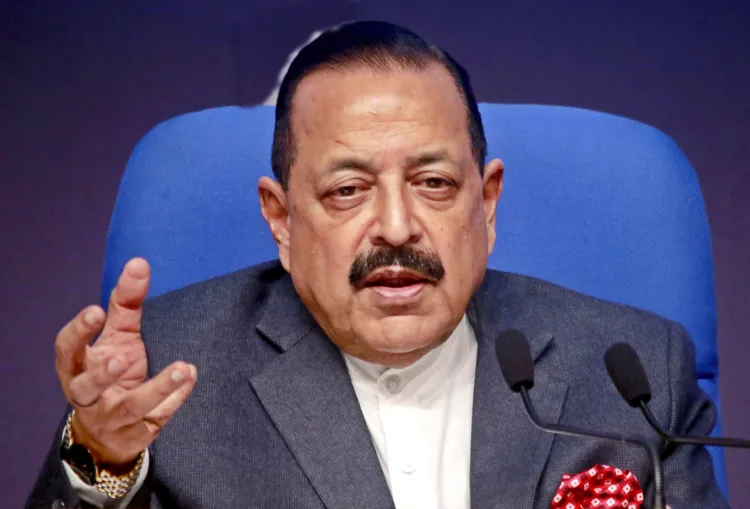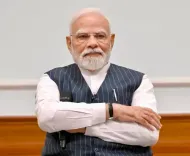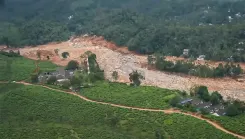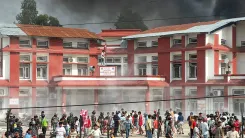Union Minister Calls Nehru's Tenure the Biggest Failure, POJK's Reclaiming Possible Only Under Modi

Synopsis
Key Takeaways
- POJK symbolizes the Nehru government's major foreign policy failure.
- Reclaiming POJK is seen as achievable only under PM Modi.
- Dr. Singh criticized the 1947 Partition as a significant blunder.
- Article 370's abrogation was a notable success of the Modi government.
- Residents of POJK may seek to merge with India in the future.
New Delhi, March 1 (NationPress) Union Minister Dr Jitendra Singh stated that Pakistan Occupied Jammu and Kashmir (POJK) represents the most significant failure of the Nehru administration and the late Prime Minister's foreign policy. He emphasized that only under Prime Minister Narendra Modi can this annexed Indian territory be reclaimed.
These pointed comments regarding the Nehru era were made by the Minister of State (MoS) in the PMO during the POJK Resolution Day event, organized by the Jammu and Kashmir People's Forum and the Mirpur POJK Sacrifice Committee at the Indian Society of International Law Auditorium.
The Union Minister criticized the Nehru government's decisions, asserting that the nation continues to suffer due to errors made during that time. He labeled the 1947 Partition as the greatest blunder in India’s history, claiming it was driven by the ambitions of Pandit Nehru and Muhammad Ali Jinnah.
Dr. Singh remarked that Nehru viewed himself as a great peace messenger, which led to multiple mistakes that the entire country faces consequences for today.
“When the Indian Army was liberating Mirpur, a ceasefire was unexpectedly declared, resulting in the POJK issue. By bringing this situation to the United Nations, Nehru committed a historical mistake that has prevented India from reclaiming its land to this day,” emphasized the Union Minister.
Singh reiterated that POJK, Pakistan Occupied Territories of Ladakh (POTL), and China Occupied Territories of Ladakh (COTL) are integral parts of India and will forever remain so. He stated that the Modi government is dedicated to reclaiming POJK, and this can only be realized under PM Modi's leadership.
He highlighted that the abrogation of Article 370, once deemed impossible, was achieved by the Modi administration.
Additionally, the government is well-prepared to reclaim POJK. He reaffirmed that the BJP has committed three generations to this cause and remains resolute in pursuing this objective.
India’s Solicitor General Tushar Mehta, present at the event, indicated that the return of POJK is merely a matter of time, referring to the abolition of Article 370, which was considered unattainable by various parties for decades post-Independence.
“Under Prime Minister Narendra Modi’s guidance, the BJP government successfully achieved this. Today, no political party dares to call for its reinstatement,” he noted.
Tushar Mehta also pointed out Pakistan’s severe economic crisis, highlighting that basic necessities are lacking in POJK—people are short on flour, unemployment has soared beyond 35 percent, and essential infrastructure is collapsing.
He mentioned that following the unprecedented development in Jammu & Kashmir after the removal of Article 370, the residents of POJK now express a desire to join India. In the near future, inhabitants of POJK may initiate a movement to merge with India.
He also stressed the importance of eliminating misleading names such as ‘Azad Kashmir’ (AJK) assigned by Pakistan and urged citizens to correct references on platforms like Wikipedia, advocating for the proper name—POJK.
Notably, at the time of India's independence in 1947, Jammu & Kashmir encompassed a total area of 2,22,236 sq. km, including Jammu, Kashmir, Ladakh, and Gilgit. Currently, approximately 54.4 percent of this territory (around 1.21 lakh sq. km) remains under illegal occupation by Pakistan and China.








